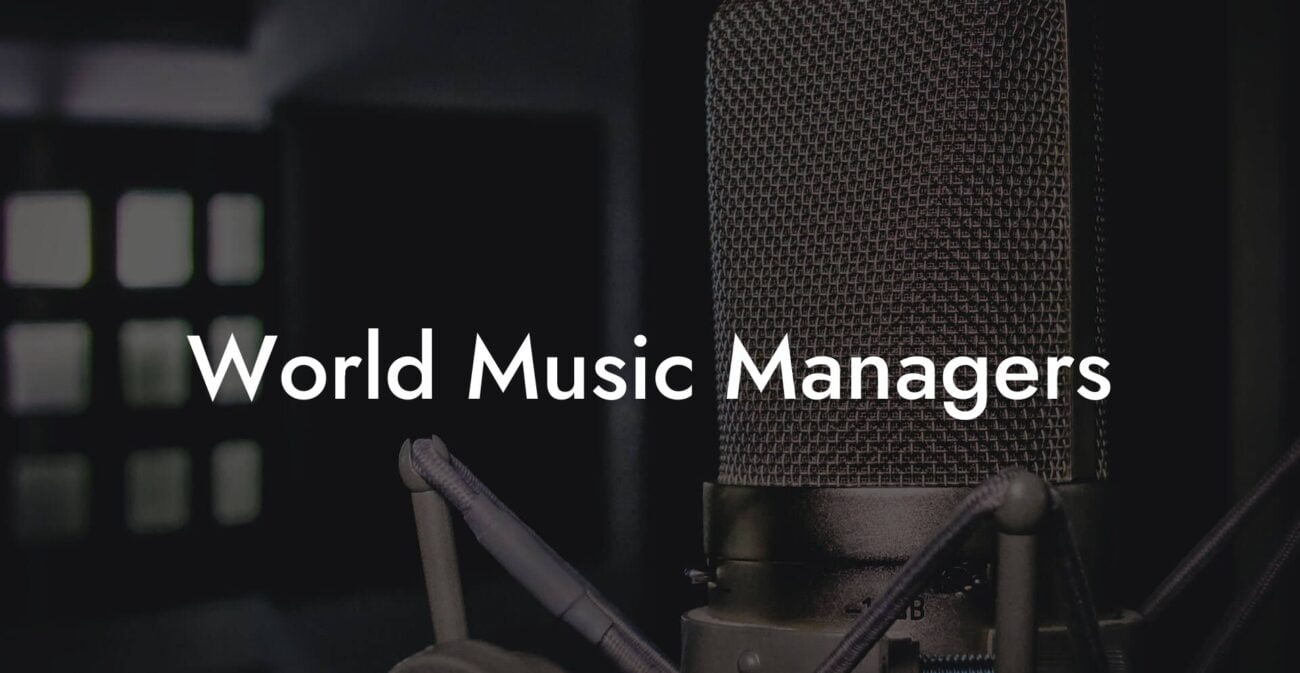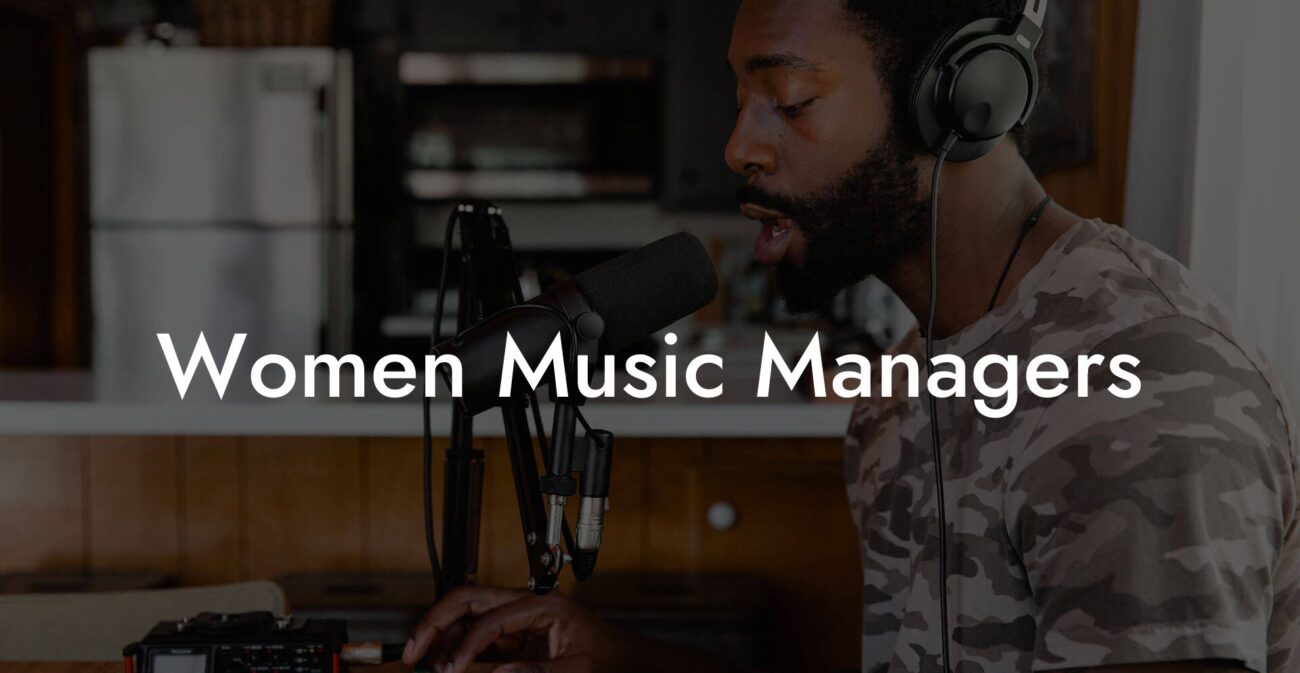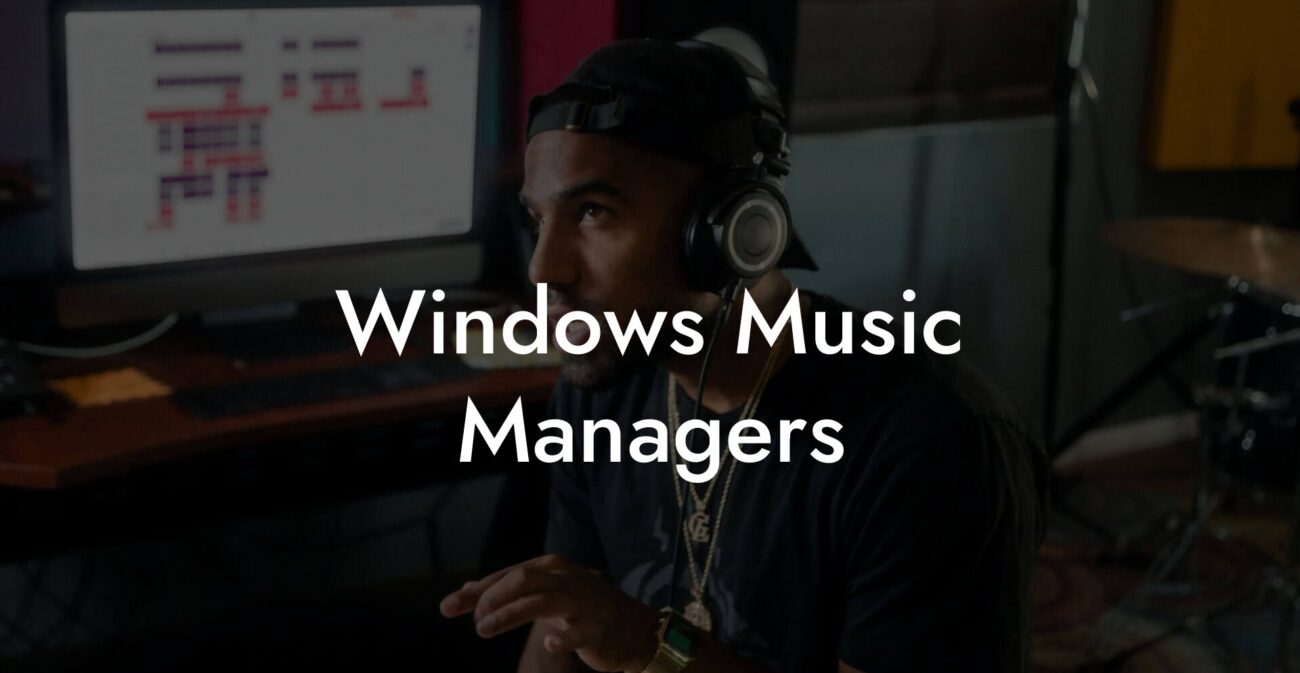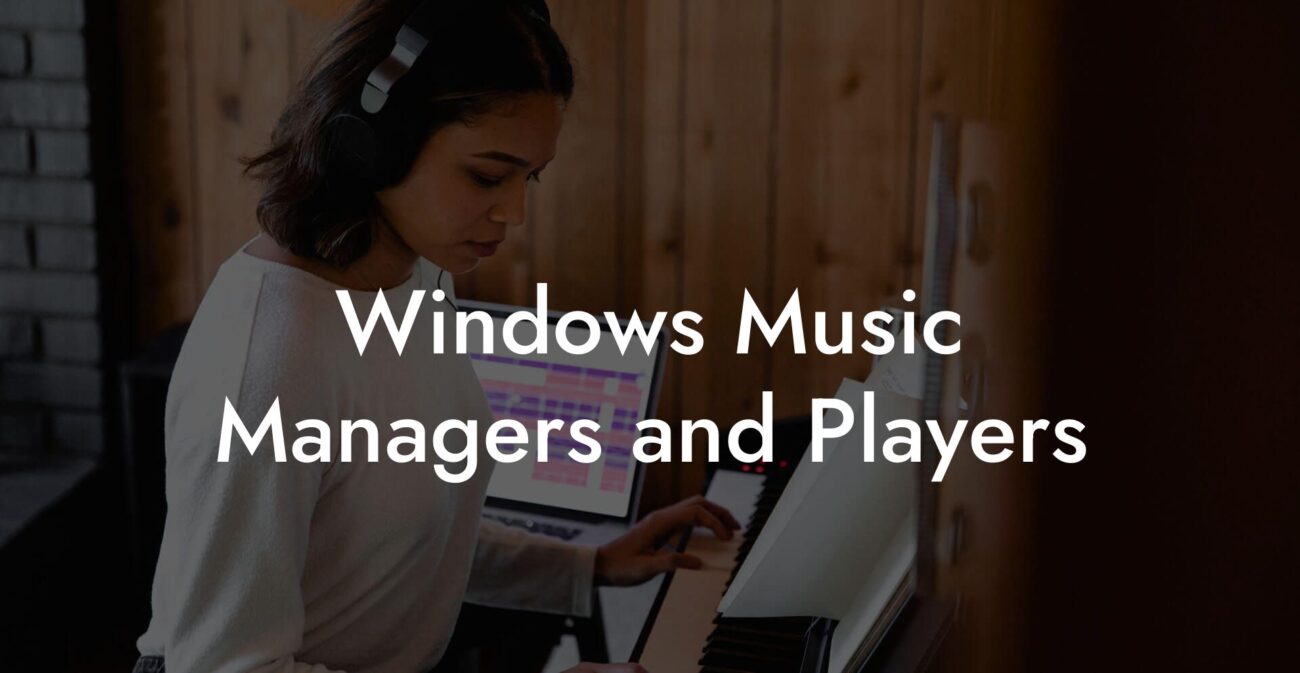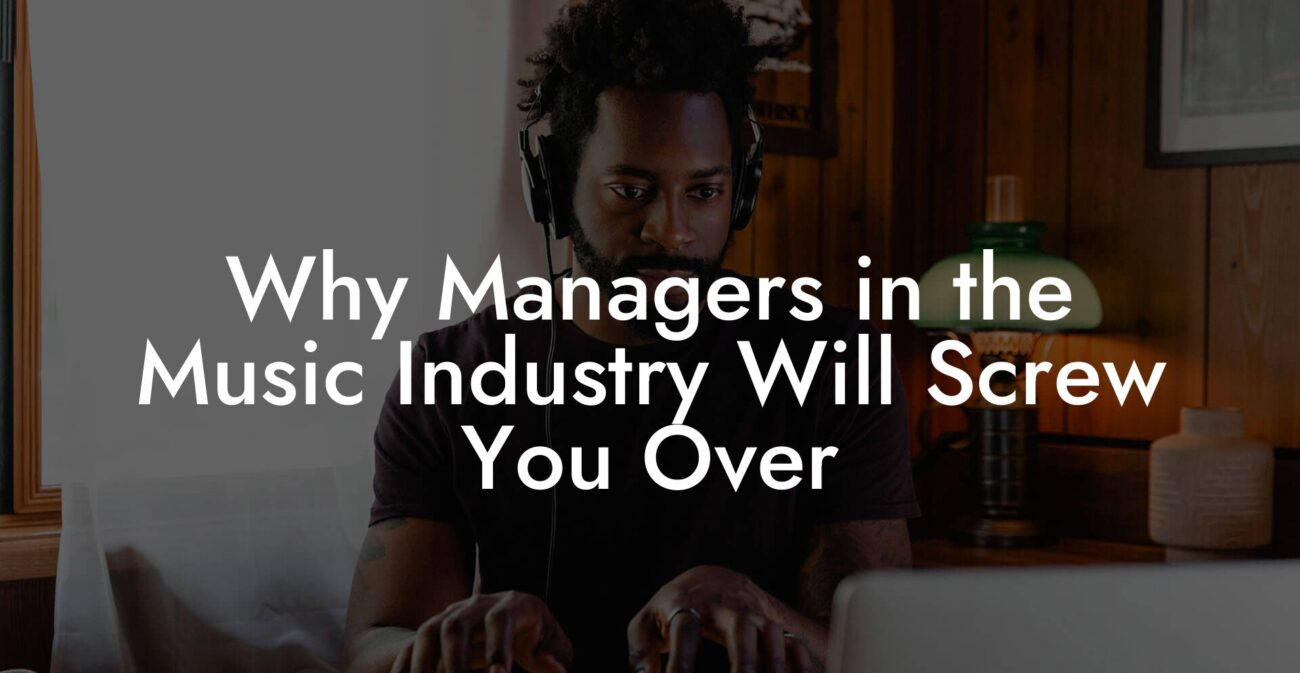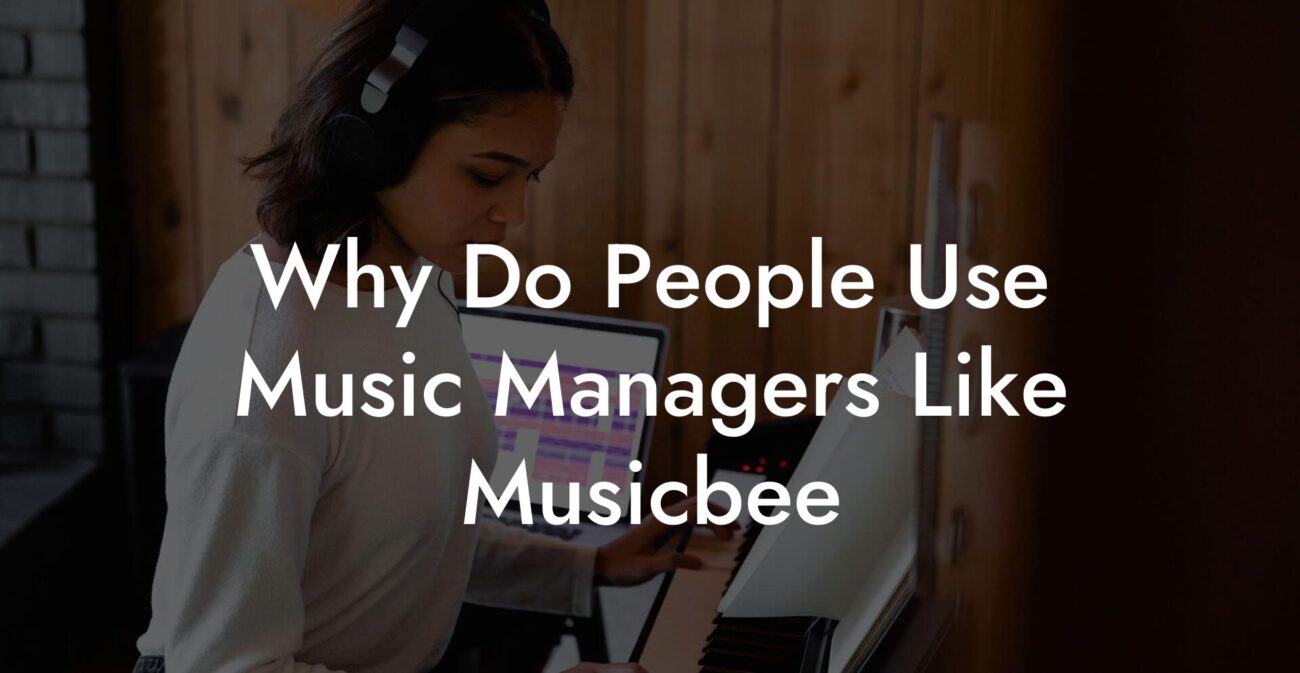Songwriting Advice
What Percentage Do Music Managers Get
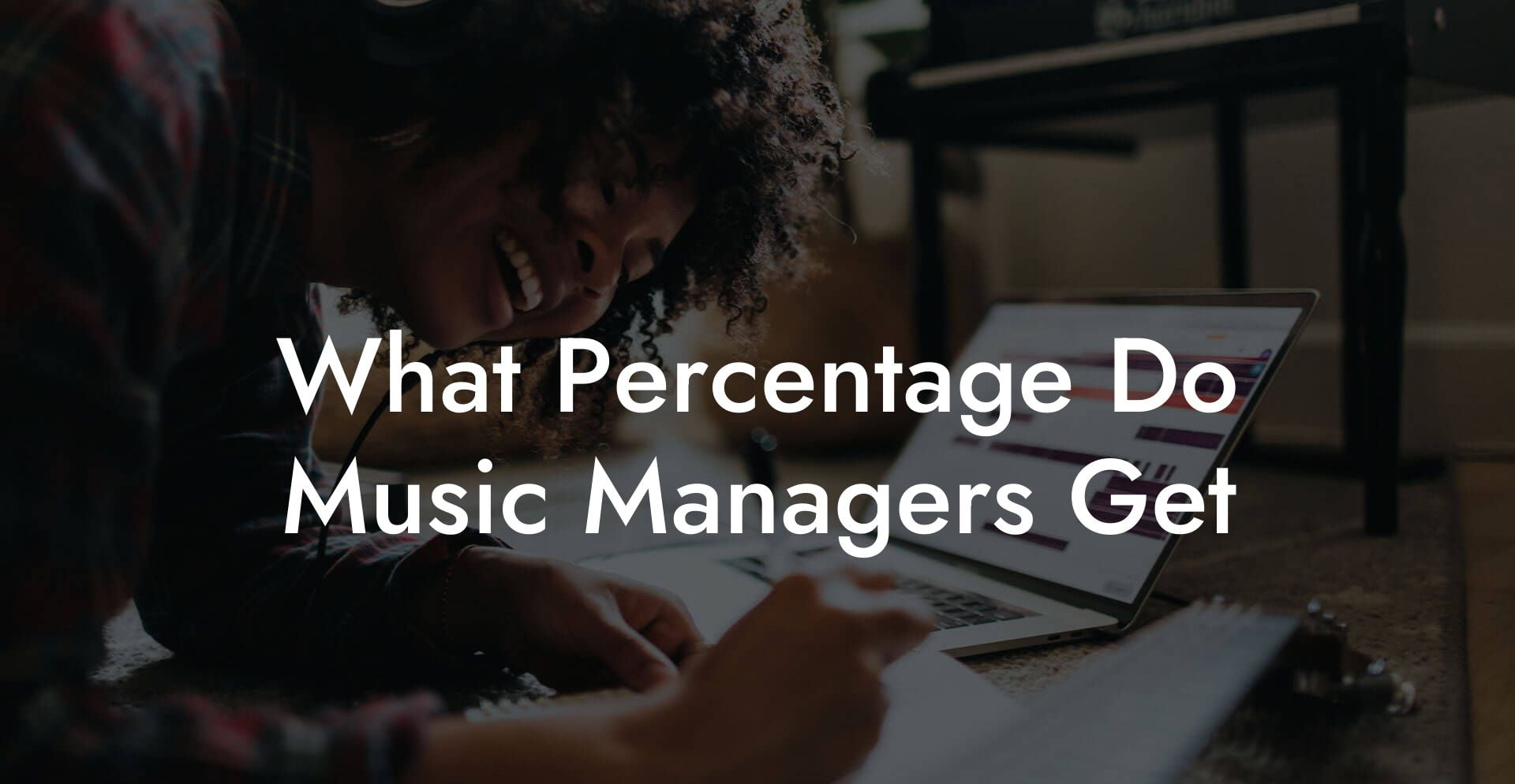
Ever wondered how much of your hard-earned music cash goes to that unsung hero behind the scenes, your music manager? If you’re an aspiring songwriter or musician hustling to get your groove on, you might have pondered, “What percentage do music managers get?” Buckle up for an in-depth, no-holds-barred exploration into the world of music management percentages that’s equal parts informative, humorous, and totally relatable. We’re diving into the money matters that shape the music industry, helping you decode everything from standard commission ranges to negotiation secrets, all while keeping it real for Gen Z and millennial artists.
Quick Interruption: Ever wondered how huge artists end up fighting for their own songs? The answer is in the fine print. Learn the lines that protect you. Own your masters. Keep royalties. Keep playing shows without moving back in with Mom. Find out more →
Quick Interruption: Ever wondered how huge artists end up fighting for their own songs? The answer is in the fine print. Learn the lines that protect you. Own your masters. Keep royalties. Keep playing shows without moving back in with Mom. Find out more →
Quick Links to Useful Sections
- Decoding the Role of a Music Manager
- How Do Music Manager Commissions Actually Work?
- Standard Percentage Ranges: What’s the Norm?
- Busting Myths: It’s Not 50-50, Promise!
- Navigating the Negotiation: Getting a Fair Deal
- Do Your Homework
- Know the Full Scope of Services
- Negotiate Based on Milestones
- Don’t Fear the Fine Print
- Factors Influencing Manager Commission Percentages
- Career Stage
- Revenue Streams
- Manager’s Experience and Network
- Contract Duration
- Value-Added Services
- Splitting the Pie: Revenue Streams and Commission Structures
- Record Deals and Royalties
- Touring and Live Performances
- Merchandising and Endorsements
- Licensing & Sync Deals
- Beyond the Percentage: How Music Managers Diversify Their Income
- Consultation and Career Coaching
- Project-Based Fees and Bonuses
- Equity Stakes and Revenue Sharing Models
- Case Studies: When the Numbers Tell a Story
- The Indie Breakout
- The Touring Titan
- The Digital Dreamer
- Negotiating and Re-Evaluating Your Management Deal
- Schedule Regular Contract Reviews
- Stay Informed About Industry Trends
- Be Open to Creative Arrangements
- Resources and Community Support: Your Next Steps
- Empowering Your Music Career With Strategic Management
- Your Journey Through Music Management Unplugged
- FAQs About Music Manager Commissions
- Your Path Forward: Rock Your Music Career With Confidence
Decoding the Role of a Music Manager
Picture your music manager as the dedicated crew member on your personal rock ‘n’ roll spaceship. While you’re busy writing killer lyrics with the help of Lyric Assistant, your manager is negotiating deals, booking gigs, and handling the daily grind that keeps your musical dreams alive. The manager isn’t just a business person; they’re your confidant, strategist, and sometimes even a cheerleader when the crowds (or bank accounts) don’t show up as expected.
Music managers are the behind-the-scenes strategists who help artists navigate the wild corridors of the music industry. They work on everything from securing record deals, sponsorship partnerships, and touring opportunities, to ensuring your brand remains as fresh and iconic as your best hooks. In short, they take care of the "how" so you can focus on the "why" of making music that matters.
But here’s the million-dollar question, or should we say, the percentage question: What slice of the revenue pie does your manager claim for their wizardry? While opinions vary, understanding the standard commission structure is crucial for any artist looking to sign on the dotted line.
How Do Music Manager Commissions Actually Work?
Let’s break it down in plain language. A music manager’s commission is basically their fee for helping you rake in the cash. Unlike a static salary, their earnings fluctuate based on your income. In the industry, it’s customary for managers to receive a commission that ranges anywhere between 10% and 20% of your earnings. However, the exact percentage really depends on a host of factors, like your career stage, the services provided, and even how much coffee your manager needs to fuel your success.
Think of it this way: if your career were a pizza, your manager’s commission is the slice they take in exchange for turning that raw dough into a gourmet pie. They’re hustling behind the scenes, securing opportunities and negotiating deals so that you get to shine on stage (and on the bank statement).
The commission structure is designed as a win-win: when you earn more, your manager does too. This symbiotic relationship aligns their interests with yours, meaning your manager is incentivized to work harder so you can both enjoy a bigger piece of the pie.
Standard Percentage Ranges: What’s the Norm?
In the eclectic realm of music management, the standard percentages are like those familiar beats you can’t help but groove to. Traditionally, most music managers earn between 15% and 20% of an artist’s gross income derived from various revenue streams. However, here’s the kicker: the actual percentage can vary depending on the services rendered and the artist’s level of success.
For emerging artists, managers might settle for a slightly higher percentage due to the increased risk and the hands-on effort required to build a budding career. On the flip side, once an artist hits a major stride in their career, they might negotiate a lower percentage, trading off volume for higher payout per deal.
It’s also worth noting that some managers offer a sliding scale commission, meaning their percentage might start higher in the early stages and then taper off as your career stabilizes. Like your favorite remix, the structure can evolve over time as circumstances and needs change.
Busting Myths: It’s Not 50-50, Promise!
Let’s clear the air on a common misconception: your manager isn’t taking half of your earnings. The myth of the half-and-half split might have been exaggerated for dramatic effect in late-night conversations or Hollywood blockbusters. In reality, even the most hardcore managers typically don’t exceed that 20% mark under normal circumstances.
The idea of a 50% cut is more a cautionary tale, a warning to artists to thoroughly understand any contract before signing on the dotted line. Sure, there might be rare cases when a manager asks for more, but those usually come with a corresponding set of extraordinary responsibilities or a very unique business model. In most standard arrangements, your manager’s cut is comfortably nestled in the lower double digits.
If you’re ever in a situation where someone suggests such a steep percentage without a rock-solid rationale, it’s time to grab your proverbial magnifying glass and scrutinize that contract. Your music is priceless, and so is a fair deal.
Navigating the Negotiation: Getting a Fair Deal
When it comes to negotiating music management contracts, knowledge truly is power, and a dash of humor doesn’t hurt either. As an artist, it’s vital to understand all the nuances before giving a single signature. Here are some pro-tips to ensure you're not signing away more than you bargained for:
Do Your Homework
Understand the industry standards and compare how different managers operate. Seek advice from fellow musicians, legal experts, and mentors. Just like you trust Lyric Assistant to help craft your lyrics, rely on solid research to guide your decisions.
Know the Full Scope of Services
A manager’s commission should reflect the value they add to your career. Make sure you’re clear on what services you’re getting in return. Are they only booking gigs, or are they also handling marketing, public relations, and brand partnerships? The broader the scope, the more justified a higher percentage might be.
Negotiate Based on Milestones
Consider negotiating a tiered contract where the commission percentage adjusts based on your career milestones. For example, your manager could receive 20% during your early days, dropping to 15% once you secure a record deal or after a certain revenue threshold is reached.
Don’t Fear the Fine Print
It’s crucial to thoroughly read every clause in your contract. If something seems off or overly favorable to the manager, don’t hesitate to ask tough questions. Legal and financial advice might seem boring compared to writing chart-topping lyrics, but it’s your safeguard against future headaches.
Remember, negotiation isn’t about confrontation, it’s a strategic conversation where both parties aim to create a sustainable and mutually beneficial partnership.
Factors Influencing Manager Commission Percentages
So, what exactly decides whether your manager’s cut lands at 10%, 15%, or even 20%? Several factors come into play, making each deal uniquely tailored to the artist-manager relationship. Let’s break down these factors:
Career Stage
If you’re a fresh face blazing a trail in the indie scene, managers might require a slightly larger percentage to offset the higher risks and the extra energy needed to launch your career. Conversely, for established artists with a solid track record, managers often negotiate lower percentages, leveraging bulk deals and repeat business.
Revenue Streams
Music income isn’t monolithic, it’s a multi-source stream including record sales, touring, merchandising, sponsorships, licensing, and much more. Some managers specialize in certain areas and may charge different percentages accordingly. For instance, touring management might command a different fee compared to record deal management.
Manager’s Experience and Network
A seasoned manager with a robust network and a rock-solid reputation can command a steeper percentage because of the proven track record. Their industry connections might secure opportunities that a newbie simply can’t, making their cut not only fair but essential for your breakthrough.
Contract Duration
The length of your agreement also plays a crucial role. Long-term contracts might offer a lower percentage initially with the promise of future benefits, while short-term deals or project-based agreements could fetch a higher rate for the concentrated burst of services.
Value-Added Services
Beyond basic management duties, some managers provide comprehensive support, ranging from social media strategy to brand development. If your manager is truly handling every facet of your career, a percentage on the higher end of the scale might be justifiable.
Ultimately, the manager’s commission is a reflection of both the tangible and intangible contributions they bring to your career. A good manager isn’t just taking a cut, they’re investing their time, expertise, and industry know-how into your future success.
Splitting the Pie: Revenue Streams and Commission Structures
Let’s talk about the different revenue streams that fuel a musician’s income and how managers carve their slice from each. Your music career isn’t just about streaming numbers or record sales, all those touring gigs, merchandising deals, and sponsorships contribute to your overall earnings.
Record Deals and Royalties
When it comes to record deals, the manager’s commission is typically calculated based on the royalties and advances you receive from your label. In many cases, this is where the standard 15% to 20% takes shape. The higher the overall income from record sales and streaming, the more your manager benefits.
Touring and Live Performances
Touring can be a major gold mine for musicians, but it’s also a logistical labyrinth. Managers often handle booking, negotiating contracts, and coordinating tour logistics. For these services, they might secure a commission that ranges similarly to record deals, though it can sometimes vary depending on tour size and revenue.
Merchandising and Endorsements
In today’s digital era, selling merchandise (from t-shirts to vinyl records) and landing endorsement deals are major income sources for many artists. Some managers work on a percentage basis for these additional revenue streams, ensuring they get a cut whenever your brand expands beyond music.
Licensing & Sync Deals
Your tracks landing in movies, commercials, or video games isn’t just a cool brag, it can be a lucrative income stream. Managers knowledgeable in the world of licensing and sync deals typically negotiate contracts that earn them a percentage of the income from these placements. Their expertise in navigating music rights makes it all worthwhile.
Whether it’s streaming, touring, or merchandising, each revenue stream offers a distinct opportunity for your manager to add value, and claim the corresponding percentage of the financial rewards.
Beyond the Percentage: How Music Managers Diversify Their Income
While the commission percentages are what catch most of our attention, the modern music manager’s world is far more nuanced. Many managers diversify their income sources, earning additional fees for consultation, strategic planning, and even a cut of ancillary revenue streams. Here’s a peek behind the curtain:
Consultation and Career Coaching
A manager isn’t just your ticket to deals, they’re also there to guide your career. Some managers charge for one-on-one consultation sessions, offering personalized career coaching, brand development strategies, and even social media optimization tips. It’s like having a personal business guru who also happens to love your music.
Project-Based Fees and Bonuses
In certain cases, managers negotiate project-based fees for launching a new album, planning a major tour, or orchestrating a high-stakes marketing campaign. And when these projects succeed beyond expectations, performance bonuses might come into play, a win-win that boosts both your profile and their payday.
Equity Stakes and Revenue Sharing Models
As the music landscape shifts with digital disruptions, some managers are experimenting with revenue-sharing or even equity models, taking a stake in your music or related business ventures. This innovative approach means they’re deeply invested in your long-term success, often beyond the typical commission rate.
In essence, many music managers wear multiple hats, ensuring that they’re rewarded not just for the percentage on your streaming income, but for the comprehensive role they play in building and sustaining your musical empire.
Case Studies: When the Numbers Tell a Story
Sometimes, the best way to understand the complexities of music manager percentages is to see them in action. Let’s explore a few real-life (or at least realistic) examples that shed light on how these numbers work out in practice:
The Indie Breakout
Meet Jamie, an indie singer-songwriter who recently started getting noticed online. Before Jamie’s career took off, her manager negotiated a contract at 20% of gross income. During the early, unpredictably bumpy rides of streaming and small gigs, that percentage covered all the extra legwork, from booking local shows to negotiating licensing deals for her quirky, catchy jingles. As Jamie’s popularity soared and she started earning more predictable revenue from record deals and merchandise, they revisited the agreement and shifted to a 15% structure. It was a natural evolution that mirrored the career growth of both the artist and the manager.
The Touring Titan
Then there’s Marcus, a rock band frontman whose electrifying performances have earned him a loyal fan base. His manager specializes in booking and negotiating tour dates, which in Marcus’s case, brought in massive revenues from live shows. Despite the high stakes and stress behind every tour booking, Marcus’s manager maintained the industry standard commission, about 15% of the relevant earnings. The manager’s ability to hammer out deals that secured multiple high-paying gigs not only justified the percentage but also paved the way for the band to expand its touring circuit and merchandise sales.
The Digital Dreamer
Lastly, consider Zoe, a social media-savvy artist who’s embraced digital platforms to launch her career. Her deals with brands and advertisers, along with streaming revenue, meant that her manager’s income wasn’t reliant on one single revenue stream. Negotiated at 18%, the percentage reflected the diverse portfolio of income sources Zoe managed. As her digital influence grew, her manager’s strategy evolved to focus on optimizing sponsorship deals and leveraging her online presence, proving that sometimes, a slightly higher commission can be well worth the enhanced expertise and network leverage.
Each of these case studies underscores one key point: the percentage a music manager gets isn’t just about a flat fee, it’s about the holistic value they bring and the evolution of an artist’s career over time.
Negotiating and Re-Evaluating Your Management Deal
Even if you’re already working with a manager, it’s wise to regularly re-evaluate your arrangement. As your career progresses, what worked in your early days might not match your current ambitions. Here are a few tips on keeping your management deal fresh:
Schedule Regular Contract Reviews
Don’t let that old contract gather dust on the shelf. Set periodic meetings with your manager to assess performance, revenue changes, and updated career goals. This ongoing dialogue ensures that the commission percentage remains fair and reflective of current market conditions.
Stay Informed About Industry Trends
As digital platforms reshape how music is distributed and monetized, the financial dynamics of the industry are continuously evolving. Staying informed means you can negotiate deals that reflect modern revenue sources, whether it’s streaming, social media, or unconventional brand partnerships.
Be Open to Creative Arrangements
The traditional percentage model isn’t the only option. Consider performance-based bonuses, sliding-scale commissions, or revenue-sharing models that reward extraordinary success. This adaptability can make your management deal a living document that grows alongside your career.
Negotiating isn’t a one-time event, it’s a continuous process that adapts as you, your manager, and the industry change. It’s all about ensuring that both parties feel they’re riding the same wave towards success.
Resources and Community Support: Your Next Steps
Now that you’ve navigated the labyrinth of music manager percentages, it’s time to take concrete steps toward securing that perfect management deal. Whether you’re just starting out or looking to renegotiate your current contract, reaching out to the right resources is as essential as writing the perfect lyric.
First off, connect with fellow musicians and join community forums that discuss music management, contract negotiations, and industry best practices. Platforms like social media groups, music industry blogs, and even local networking events can provide insights from those who have been in your shoes.
Additionally, consider consulting with an entertainment lawyer who can break down the legalese and help you understand the finer details of a management contract. Getting professional advice can be the difference between a fair deal and signing away too much of your creative earnings.
And while you’re mapping every beat of your career, don’t forget to harness the power of tools like Lyric Assistant. Crafting those catchy lyrics that define your brand can seem daunting, but with the right support, your creative journey becomes smoother, and your management deals even more impressive.
Empowering Your Music Career With Strategic Management
At the end of the day, understanding what percentage music managers get is about more than just numbers, it’s about empowering your career. A fair commission structure aligns your manager’s success with your own, so when you hit that high note, they’re right there celebrating with you (and earning a slice of the victory pie).
Whether you’re debating the fine print of a contract or strategizing how to expand into new revenue streams, know that every conversation and every negotiation is a stepping stone toward a stronger, more sustainable career. Your music is your art, and a well-structured management deal can be the secret ingredient to turning that art into a thriving business.
In a landscape where streaming numbers fluctuate and tour revenues surge and dip, a knowledgeable manager is your ticket to stability and growth. They’re the backstage pass to opportunities that can transform your musical journey, so choose wisely, negotiate smartly, and let your creativity soar.
Your Journey Through Music Management Unplugged
The world of music management percentages might seem as complex as a multi-layered guitar solo, but with the right guidance and a pinch of humor, the numbers start to make sense. Every percentage point reflects the expertise, dedication, and hustle that your manager brings to the table, ensuring that when you’re writing lyrics with Lyric Assistant, someone’s making sure the spotlight finds you.
Remember, your management deal isn’t set in stone. As you grow as an artist, your needs will evolve, and so should your agreement. Continuous communication, renegotiation, and a clear understanding of industry standards are the keys to unlocking a fair and rewarding partnership.
So, whether you’re still figuring out if that 15% sounds about right or you’re deep in negotiations for a tiered contract, stay informed, stay confident, and keep rockin’ those lyrics. Your musical journey is not just about hitting the high notes, but about building a sustainable career where every beat, every deal, and every dollar works in harmony.
FAQs About Music Manager Commissions
Here are some frequently asked questions that dive deeper into the ins and outs of music manager commissions. We’ve unpacked the common queries to help you navigate the world of management deals with confidence.
1. What percentage do music managers typically get?
Most music managers receive around 10% to 20% of an artist’s gross earnings, though the exact percentage depends on services provided, the artist’s career stage, and the revenue streams involved.
2. Does a manager’s commission differ based on revenue stream?
Yes! For example, commissions on record deals, touring revenue, merchandising, and licensing agreements might vary slightly. Some managers work with a uniform percentage while others may adjust the percentage for specific revenue streams.
3. Are there cases where managers ask for more than 20%?
While 10%-20% is the norm, some managers might negotiate higher percentages if they offer additional services or if you’re an emerging artist and the risk is higher. Always scrutinize the contract details.
4. Can the commission percentage be renegotiated over time?
Absolutely. Many artists and managers agree on a sliding scale where the percentage adjusts as your career grows and certain milestones are met.
5. What should I look out for in a management contract?
Look for clear definitions of the services provided, the exact percentage on different revenue streams, contract duration, and any clauses about renegotiation or termination. A reputable entertainment lawyer can help clarify the fine print.
6. How do I know if I’m getting a fair deal?
Research industry standards, seek advice from other musicians, and consult with a lawyer. A fair deal aligns the manager’s incentives with your success and reflects all the value they bring.
7. What happens if my manager also brings in additional income streams?
If your manager is also managing endorsement deals, consulting, or even revenue from merchandise, their compensation might include bonuses or special percentages for those extra sources.
8. Are there alternatives to a percentage-based commission?
Yes, some agreements may include a combination of flat fees, performance-based bonuses, or revenue-sharing models that adapt to your career’s evolving needs.
9. How important is it to review my management contract regularly?
It’s critical. As your career evolves, regular reviews ensure that the agreement remains fair and that both you and your manager are aligned on expectations.
10. What resources can help me make better contract decisions?
Industry blogs, networking with fellow artists, and professional advisors such as entertainment lawyers are invaluable. Don’t forget to leverage communities and forums dedicated to music careers for real-time insights.
Your Path Forward: Rock Your Music Career With Confidence
Equipping yourself with knowledge about what percentage music managers get is your first power chord in the symphony of your career. From understanding the roles and responsibilities to mastering the art of negotiation, this guide has unraveled the complexities behind those seemingly mysterious percentages.
As you set out to secure your place in the music industry, remember that every successful artist knows the value of a good managerial partnership. It’s not just about splitting earnings, it’s about building a relationship where both you and your manager are committed to reaching new heights.
Whether you’re drafting new lyrics with Lyric Assistant or negotiating your next big record deal, stay savvy about the numbers. Your manager’s commission is not a fee to fear but an investment in the support, expertise, and hustle that propel you towards your dreams.
So, lace up those boots, tune your instruments, and step into the spotlight knowing you’re backed by a fair, well-negotiated deal that lets you focus on creating the music you love. Your journey is just beginning, and with a clear grasp of the business dynamics at play, there’s nothing stopping you from rocking your career to its fullest potential.



